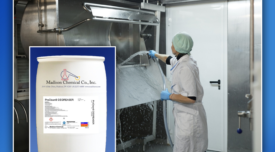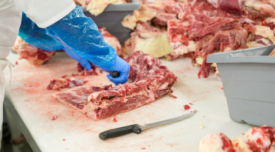Sanitation
Pandemic disruptions prevented a greater focus on fundamental issues, to which processors are now returning
Read More
BIZTRACKS
Scientists Develop Formulation That Boosts Antimicrobial Properties of Natural Hand Barrier
September 8, 2023
Never miss the latest news and trends driving the food safety industry
eNewsletter | Website | eMagazine
JOIN TODAY!Copyright ©2024. All Rights Reserved BNP Media.
Design, CMS, Hosting & Web Development :: ePublishing










